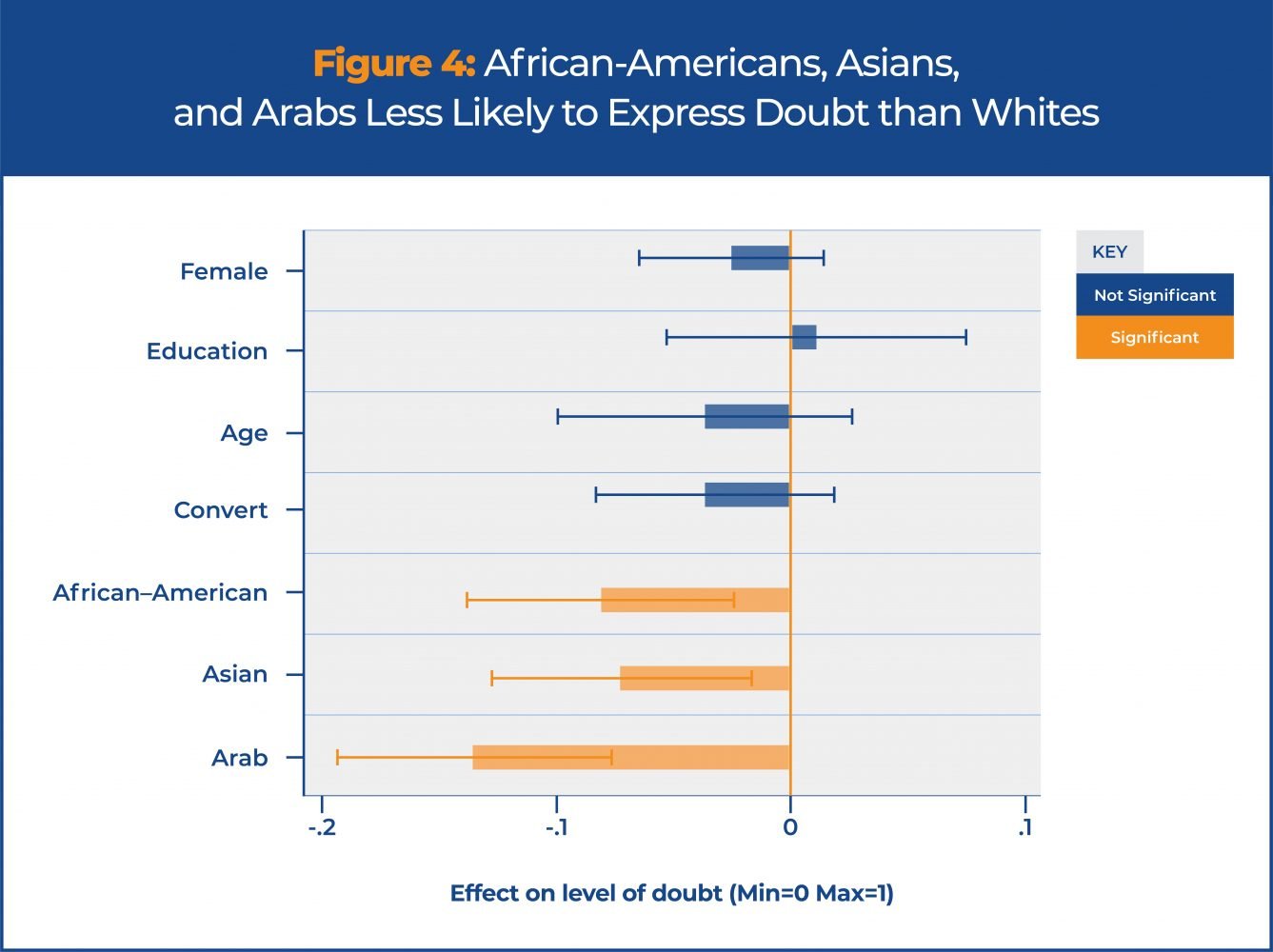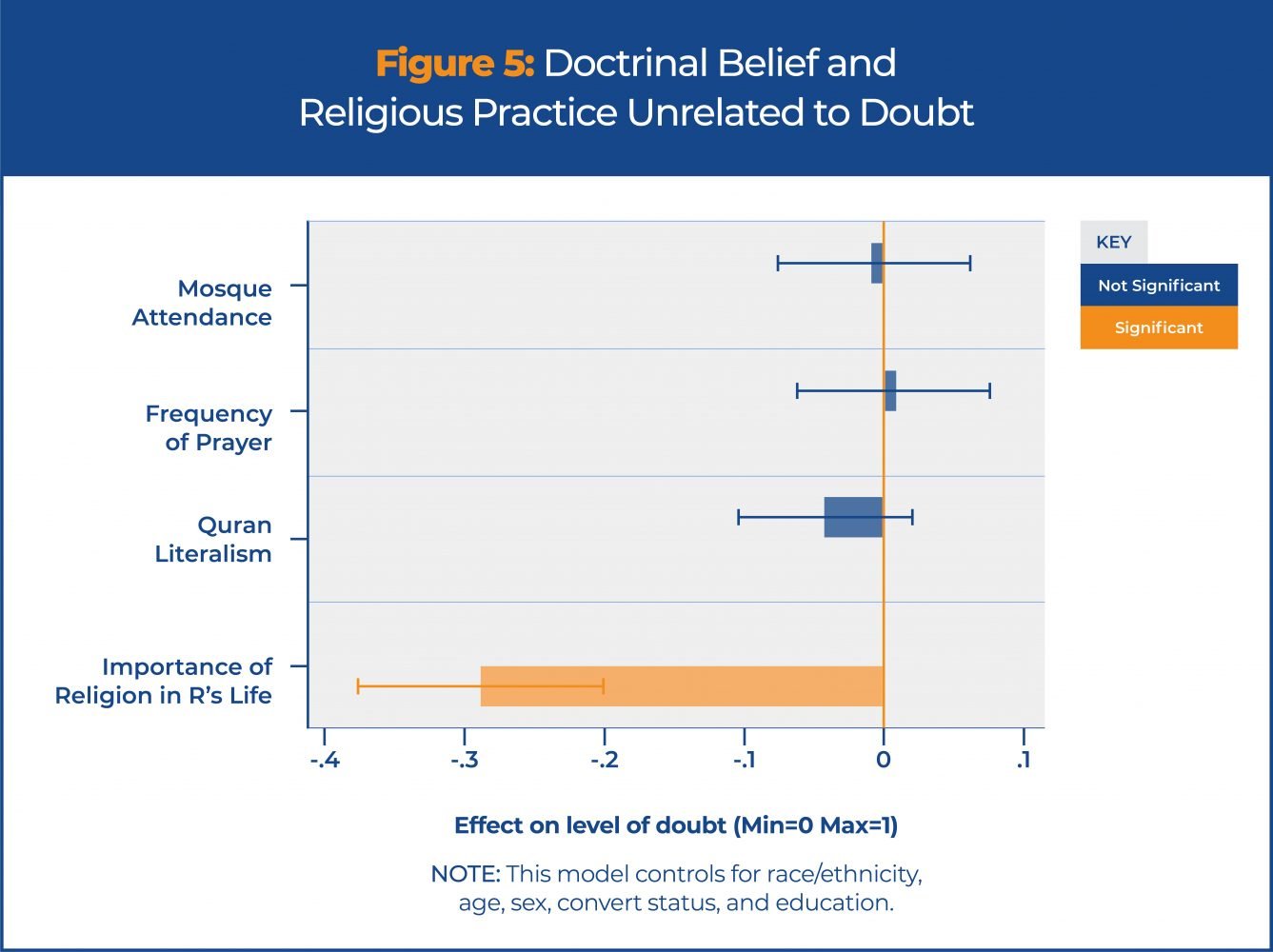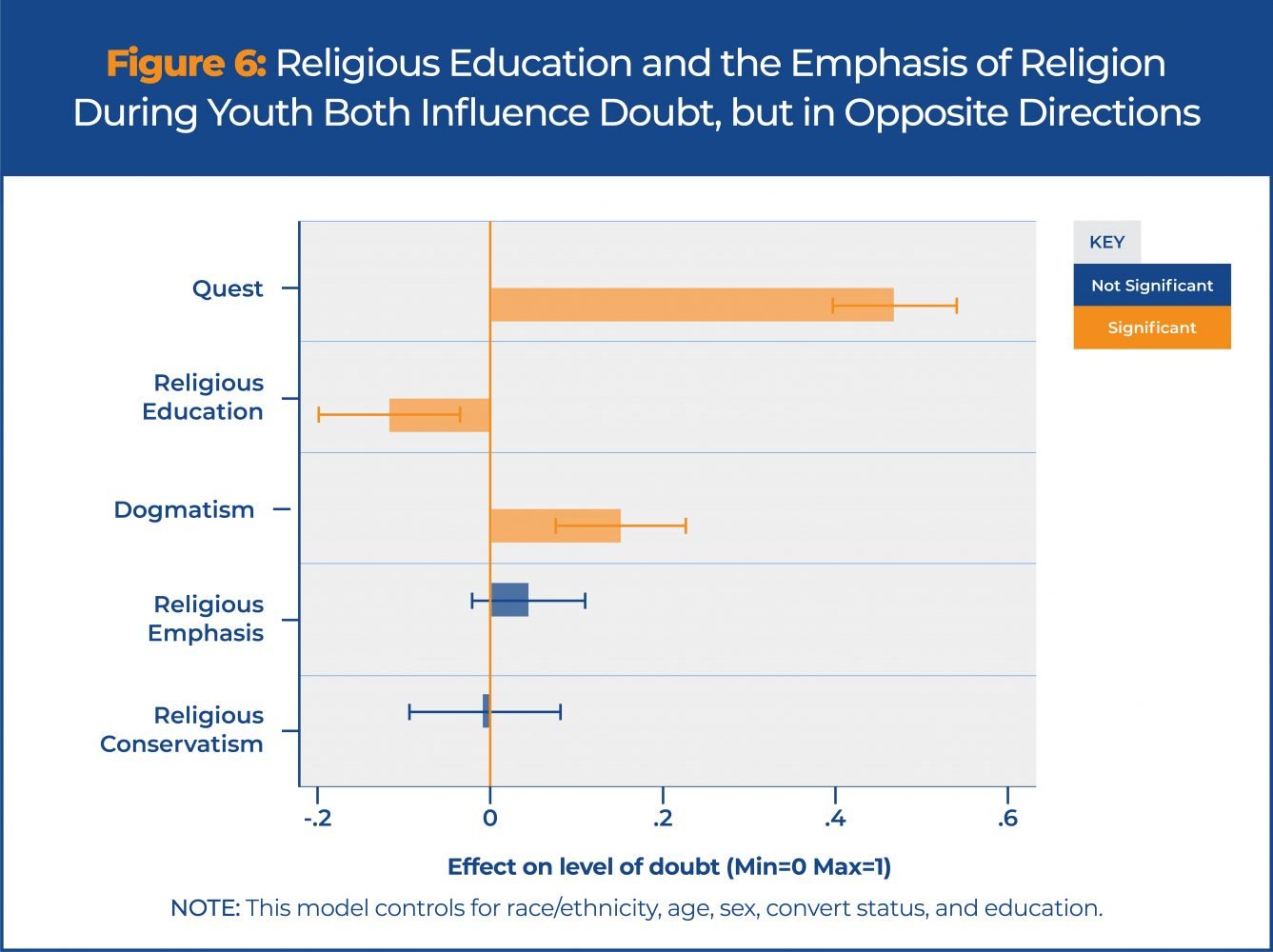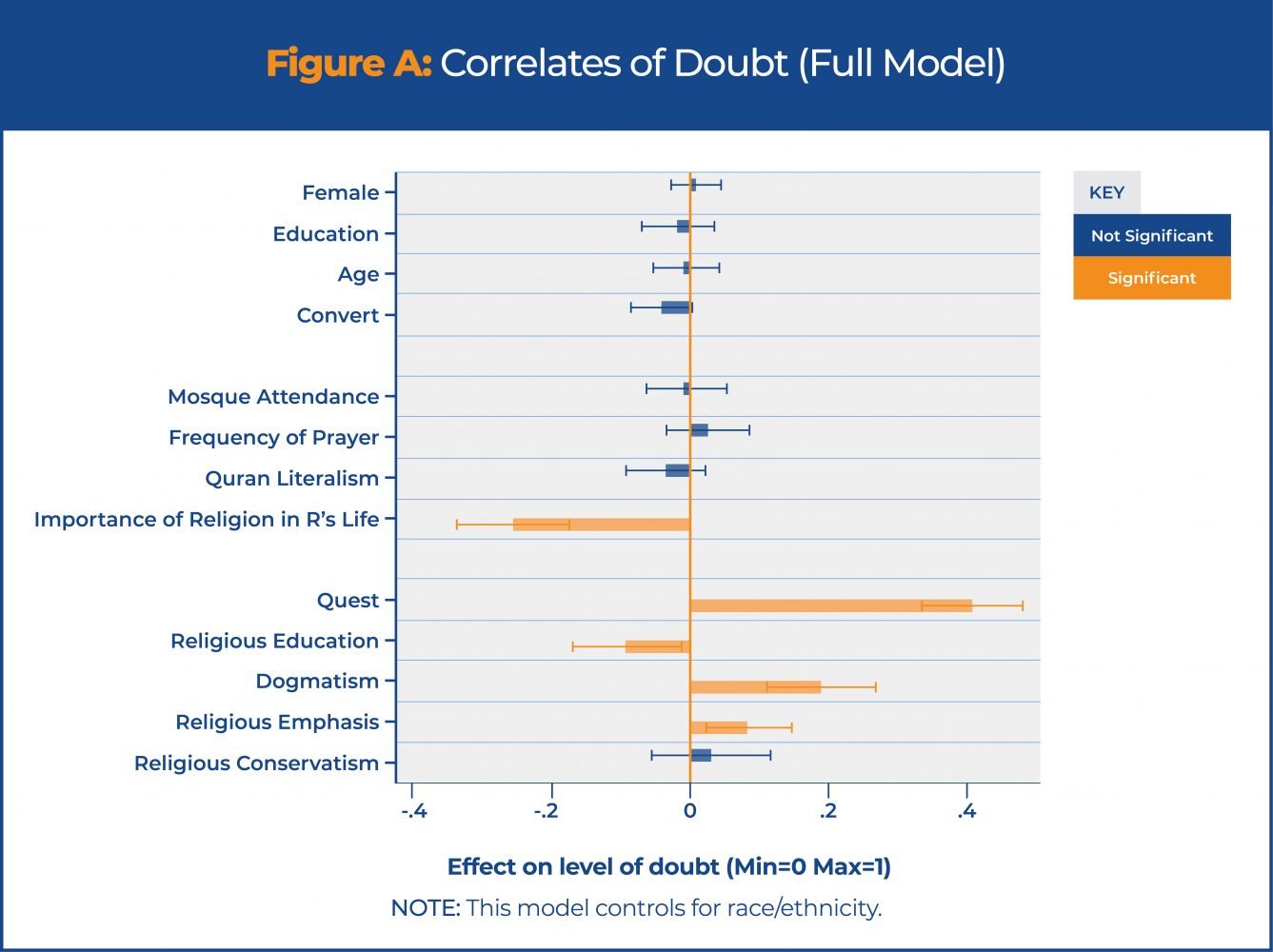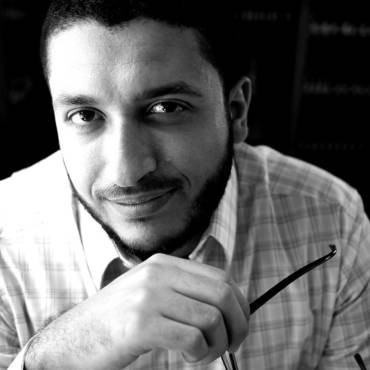Methodology
Although this study breaks new empirical ground, the data collection expressly built on prior work when possible. Appendix A at the end of this report outlines the sampling technique in detail, however the sources of our questionnaire are worth highlighting at the outset. Specifically, the conceptualization and categorization of doubt aligns with this project’s initial study. As in “Modern Pathways,” here we are concerned with the type of religious doubt that potentially undermines one’s faith and could even lead one to abandon Islam altogether. To that end, the prompt that introduced the items comprising our doubt scale read as follows:
Sometimes, certain experiences or teachings lead people to deeply question their faith. To what extent have the following issues EVER caused you to seriously doubt your religious beliefs?
The doubt scale’s organizing framework similarly drew upon the findings from our previous study. In particular, this earlier work highlighted three core umbrella categories of doubt. The first, Moral and Social Concerns, reflects the potential anxieties that arise when an individual must reconcile their understanding of Islam with society’s (at times, far more malleable) ethical norms. It is worth underscoring that, contrary to anti-Muslim assertions that have gained prominence in the past decade (particularly since the start of the last presidential cycle), the overwhelming majority of Islamic doctrine and practice is wholly compatible with living as an American citizen. Yet, as with any comprehensive doctrine, there will be certain issues where mainstream interpretations of Muslim beliefs and practices are at odds with dominant cultural understandings in America. For American Muslims, these tensions and conflicts can become an impetus for doubt.
The second category, Philosophical and Scientific Concerns, comprises critiques aimed at the presumed “irrationality” of religion, generally, and Islam, in particular. Doubts that travel along this pathway tend to cluster around three nodes: 1) the Evolution vs. Creation debate, 2) the general perception that scientific knowledge conflicts with fundamental religious beliefs, and 3) the inability to “prove” certain tenets of faith or resolve seeming contradictions, such as why an all-Good God would allow evil in the world.
A final set of doubts, those stemming from Personal Trauma, rounds out the three general categories that emerged from in-depth interviews with Muslim institutional leaders across the country. This third source encompasses trauma brought on through 1) intimate events/interactions, whether acute (such as with the death of a loved one) or prolonged (such as with recurring physical or emotional abuse), and 2) communal interactions, wherein an individual feels discriminated against or otherwise unwelcome in dedicated Muslim spaces.
Utilizing this framework, we populated the doubt battery with items that other scholars have validated in previous studies. The collaborative and individual work of two sociologists, Bob Altemeyer and Bruce Hunsberger, was especially influential. In particular, a number of scales used in this study were adapted from the duo’s seminal, and entirely relevant, work,
Amazing Conversions: Why Some Turn to Faith & Others Abandon Religion.
[2] Extracting (with occasional necessary amendment) the most applicable items from Altemeyer and Hunsberger’s questionnaire and organizing the items according to our framework for Muslim doubt, we obtained the following battery of potential sources of doubt:MORAL AND SOCIAL CONCERNS
Teachings about the role of womenThe hypocrisy of religious people; that is, the nonreligious behavior of supposedly religious individualsThe bad things that people do in the name of religionThe intolerance that some religious people show toward other faithsThe way that religious people sometimes insist that there is only one "right" way to practice faithThe intolerance that some religious people show toward certain other people (e.g., homosexuals)PHILOSOPHICAL AND SCIENTIFIC CONCERNS
The debate over Evolution (through natural selection) vs. Creation (through God)Uncertainty over the existence of GodThe problem of evil and unfair suffering in the worldFeeling that certain religious beliefs or practices do not make sensePERSONAL TRAUMA
Finding that being religious does not make one happyNot feeling welcomed in your faith communityThe death of a loved oneFor each item, the response choices were “Not at all,” “A little,” “A moderate amount,” “Quite a bit,” or “A great deal.”
Although the Muslim doubt scale largely aligns with our framework in “Modern Pathways,” there is one notable discrepancy: the items meant to gauge personal trauma do not ask directly about emotional or physical abuse. This was not an oversight, but rather a conscious decision. This determination was, first and foremost, taken with the concern of our respondents in mind, as such questions should not be broached absent a careful strategy to gauge the relevant attitudes and experiences while causing the least amount of harm. Such an approach requires a dedicated study on the topic, rather than one that measures a broad range of attitudes. Secondarily, including questions of this sort could be detrimental to the survey’s validity and reliability, as it could cause some respondents to simply drop out once they see these items, or otherwise alter the mindset of those respondents who choose to remain in the survey. For these reasons, we opted not to inquire about prolonged traumatic events in this survey.
The Sources of Doubt
Figure 1 presents the proportions for each of the items in the doubt scale, ordered from those issues that most caused respondents to deeply doubt their religious beliefs to those that did so the least. The first notable feature of this graph is that the top four issues all come from the Moral and Social Concerns family of doubts. Moreover, with the partial (though, debatable) exception of the top issue (“The way that [some] insist there is only one 'right' way to practice faith”), all four refer to particular behaviors rather than tenets of belief. The upshot is that the primary driver of doubt appears to be the actions of Muslims rather than the doctrines of Islam. This interpretation is further reinforced when turning to the bottom of the chart where each of the four items that least trigger doubt are directly related to doctrinal belief or the interpretation of personal life events in light of doctrinal belief.

To gain even more insight into the dynamics of Muslim doubt, we probed our respondents to consider the extent to which the issues that led them to question their religious teachings in the past are still a concern. Specifically, each respondent who noted that an item in the initial battery had caused them to seriously doubt their beliefs at least “A little” in the past, was asked about those same items again with the following prompt:
And of those issues that have troubled you in the past, how much do they CURRENTLY still cause you to doubt your religious beliefs?
Figure 2 presents the proportions for each of the items in the follow-up battery of doubt questions. Overall, our sample’s current level of doubt is significantly lower than in the past—a mean decrease of 23% on the overall doubt scale. Indeed, fully 17% of those who reported that at least one issue led them to doubt “A little” in the past now report that none of the items in our follow-up battery currently cause them to question their religious beliefs.
In terms of the sources of doubt, the top of the chart is once again dominated by moral and social concerns. The top two considerations driving current levels of doubt in our survey are “The bad things that people do in the name of religion” and “The problem of evil and unfair suffering in the world,” which indicates that negative headlines about terrorism and general hardship at home and abroad are taking their toll on the American Muslim psyche. The bottom of the chart remained largely unchanged from the pattern in Figure 1.
Responses to Doubt
Beyond cataloging the reported sources of doubt, we also wanted to examine how American Muslims respond when their faith is challenged. To answer this question, we gauged the likelihood of a respondent taking a particular action on a 4-point scale from “Not at all likely” to “Very likely” using the following prompt and survey battery:
[3]Thinking back on the instances when you DEEPLY questioned aspects of your religion or were troubled by certain beliefs or practices, how likely were you to do the following:
Read your Holy Book or other religious materialsTalk with friends or relatives who belong to YOUR religionPray for enlightenment and guidanceTalk with a religious authority (such as a priest, minister, imam or rabbi)Turn to websites or modern books authored by those of the SAME faith as youSeek out people from OTHER religions to see if what they believed made more senseDecide to seek the truth, even if it meant leaving your religionPurposefully turn to sources that went against your religious beliefsTalk with friends who had no religious beliefs about why they did not believeFigure 3 displays the proportions for the Responses to Doubt scale. The responses divide neatly along two dimensions: 1) belief-confirming consultations (BCC) that indicate an individual’s desire to seek guidance from sources that accord with their existing religious beliefs, and 2) belief-threatening consultations (BTC), which challenge one’s established religious worldview.
[4] The respondents in our sample clearly preferred the BCC route when doubts arose. In particular, solitary engagement, either through prayer or turning to Islam’s primary sources, was the likeliest path our respondents took when faced with deep concerns about their faith.
Notably for our purposes, a clear majority reported being at least somewhat likely to talk to an imam, which gives us further confidence that the institutional leaders’ experiences in “Modern Pathways” align well (if perhaps not perfectly) with the broader American Muslim reality. Moreover, the tendency to turn to sources that reinforce faith, coupled with the overall lower levels of current doubt when compared to doubt at any time in the past, indicates that crises of faith are not irreversible and that interventions (whether personal or interpersonal) can effectively address certain apprehensions.
At the other end of the graph, although the tallies are significantly lower, there are nonetheless sizeable portions of the sample that explore doubts via a more contentious pathway. No fewer than a quarter of our respondents were at least somewhat likely to react to their doubt by seeking sources of guidance outside of Islam or otherwise resolving not to be bound to the goal of maintaining their faith. This is not to say, however, that a relinquishing of Islam is the endpoint of all who travel down this road. Indeed, some who make this journey may ultimately renew or even strengthen their belief. Such was the case, for example, with Yaqeen’s own Sheikh Omar Suleiman who, in a recent interview, related how he himself chose a more skeptical response to doubt in his youth and eventually ended up more certain in his faith as a result.
[5]



